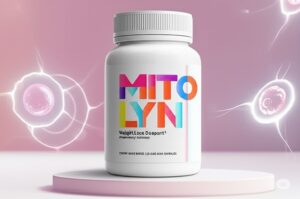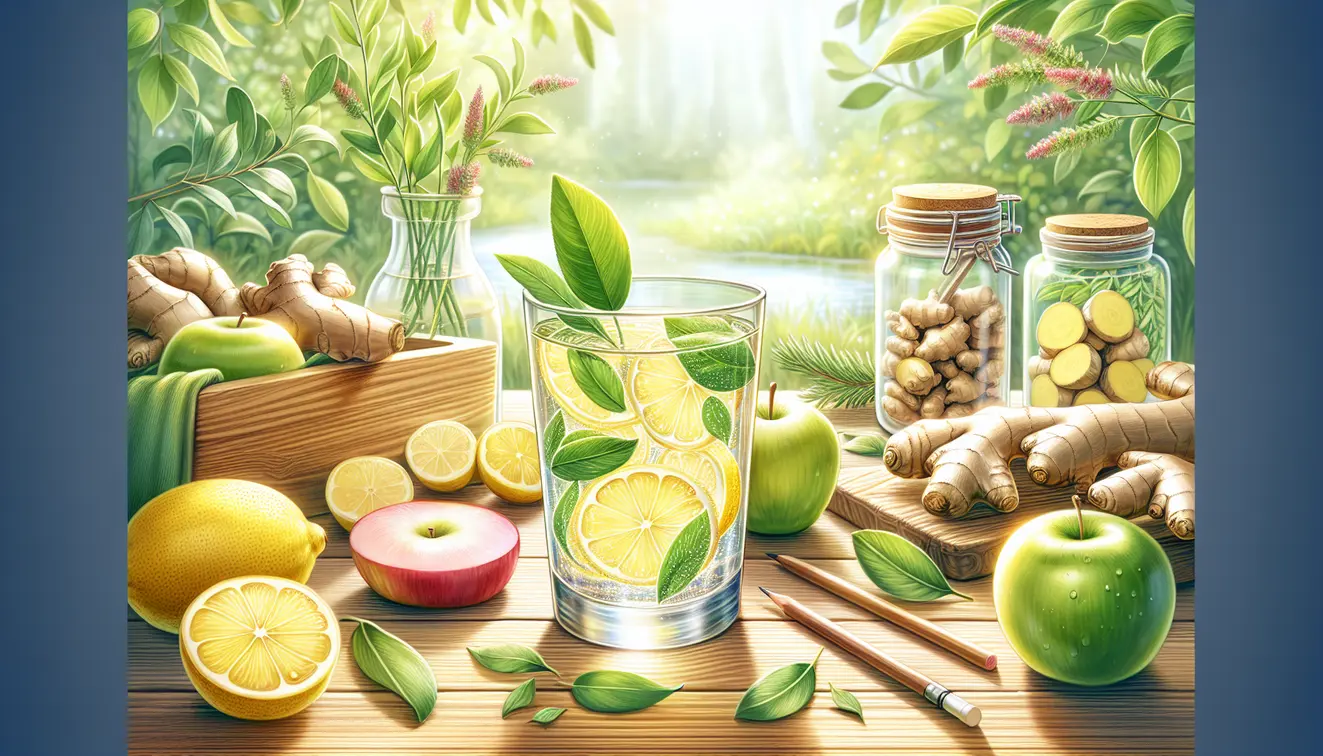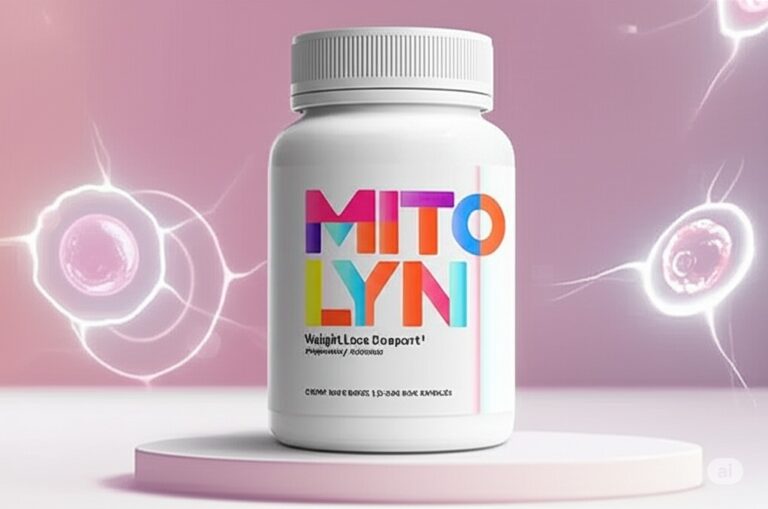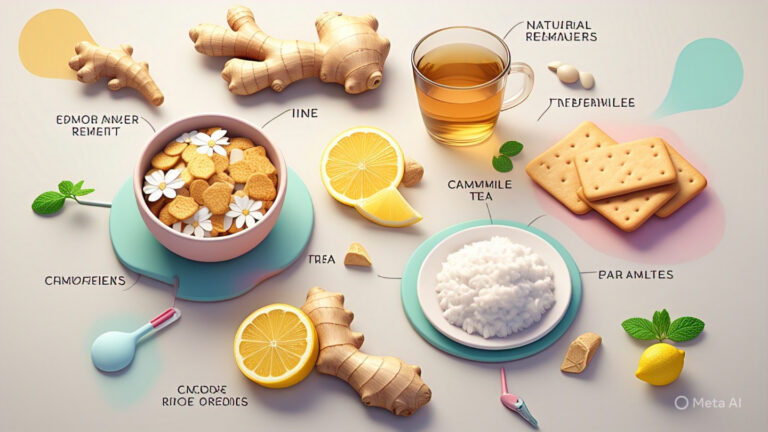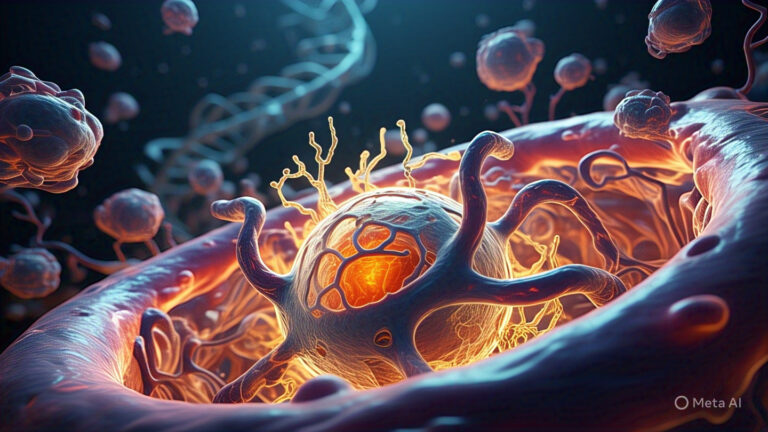Home Remedies for Colon Cleansing: Unlock Natural Gut Relief Fast
Estimated reading time: 10 minutes
Key Takeaways
- Your body naturally detoxifies through the liver, kidneys, and colon, often making aggressive cleanses unnecessary.
- Gentle home remedies like hydration and fiber can support digestion without risks.
- Unsafe practices such as overuse of laxatives or detox kits can harm your health.
- Consult a doctor for persistent digestive issues or before trying intense methods.
Table of Contents
- Introduction to Colon Cleansing and Home Remedies
- What Is Colon Cleansing? A Clear Explanation
- Why Do People Seek Home Remedies for Colon Cleansing?
- Are Home Remedies for Colon Cleansing Safe and Necessary?
- Top 7 Evidence-Based Home Remedies for Colon Cleansing
- Lifestyle Tips to Support Long-Term Colon Health
- Unsafe Colon Cleansing Practices to Avoid
- When to Consult a Healthcare Professional
- Frequently Asked Questions (FAQs) About Colon Cleansing
Introduction to Colon Cleansing and Home Remedies
Have you ever felt weighed down by bloating or sluggish digestion? Many turn to colon cleansing, hoping for a quick fix to improve gut health or ease discomfort. At WikiHomeRemedies, we understand this urge and aim to guide you through safe, natural paths to relief, grounded in science.
Colon cleansing often sparks curiosity as a way to refresh the body, but not all methods are safe or necessary. We’re here to sift through the noise, offering home remedies that truly support your digestive system. This article will walk you through what colon cleansing means, why people seek it, and how to do it naturally with confidence.
You’ll discover evidence-based solutions, safety tips, and lifestyle habits for lasting gut wellness. Let’s explore how nature can nurture your health, step by step, drawing on trusted insights from sources like the Mayo Clinic. Ready to unlock relief the right way?
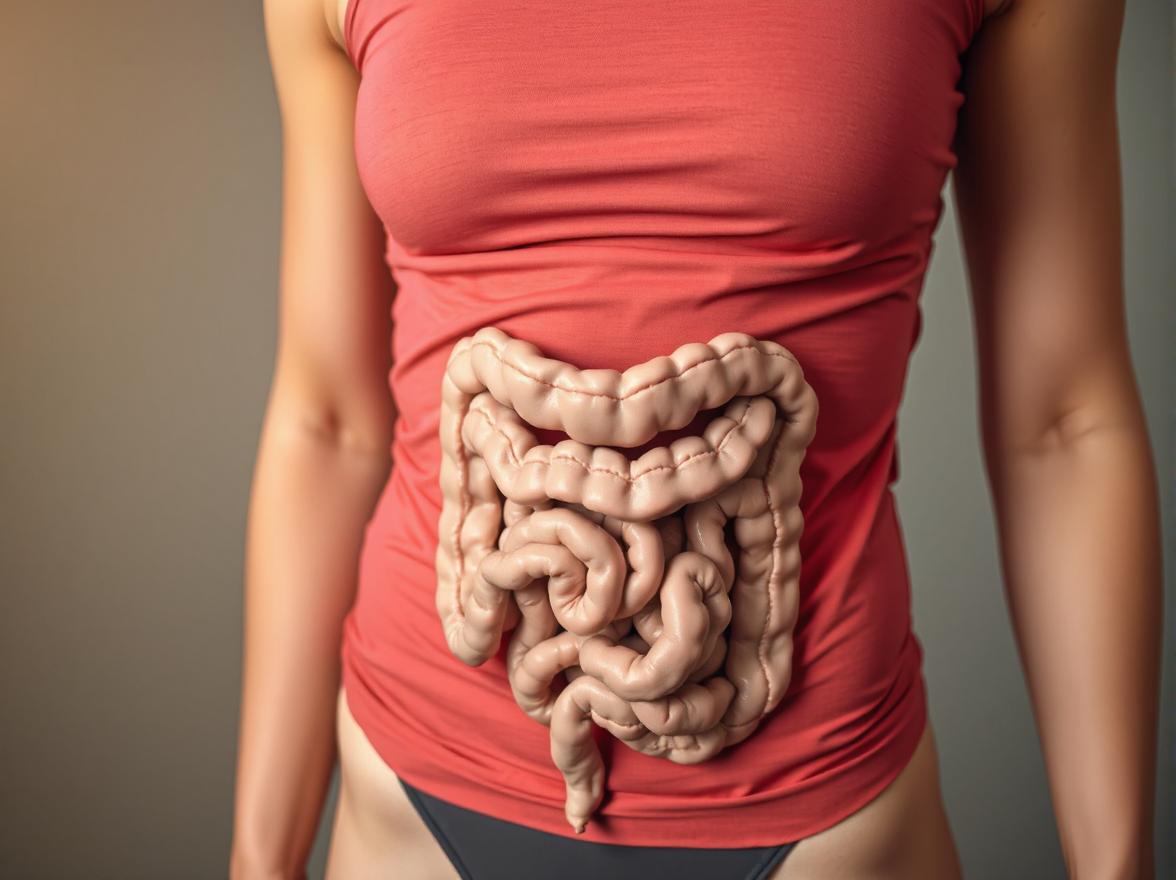
What Is Colon Cleansing? A Clear Explanation
Colon cleansing refers to the process of clearing waste or supposed toxins from the large intestine. Historically, it’s been tied to ancient wellness practices across cultures, from Egyptian rituals to modern detox trends. Yet, its purpose and benefits remain widely debated in medical circles.
The idea often stems from a desire to reset digestion or flush out impurities. But science tells a different story. Your body already has a built-in detox system, with the liver and kidneys filtering waste efficiently. The colon itself sheds old cells and waste naturally, questioning the need for aggressive intervention.
Let’s clear up some confusion surrounding this topic. Here are a few misconceptions we often hear:
- Many believe toxins linger in the colon, needing regular purging.
- Others think cleansing is a must for overall vitality.
These ideas lack solid backing, as noted by trusted sources like the National Institutes of Health (NIH) and WebMD. Understanding the body’s natural processes helps us approach gut health with clarity.
Common Misconceptions About Colon Cleansing
A popular myth suggests that harmful substances build up in the colon over time. This often fuels the idea of needing frequent detoxes. However, research from the Mayo Clinic and Cleveland Clinic shows no evidence of such toxic accumulation in a healthy person.
Another false notion is that cleansing boosts energy or cures illness. Science doesn’t support this claim. Relying on unproven methods can sometimes do more harm than good, which is why we focus on what’s proven to work.
How the Body Naturally Detoxifies
Your liver processes toxins, turning them into waste for the kidneys to flush out. The digestive system, including the colon, also plays its part by expelling what the body doesn’t need. Simple habits like drinking water support this cycle effortlessly.
Think of hydration as a gentle nudge to keep things moving. It softens waste, making elimination smoother. This natural rhythm, backed by insights from WebMD, often outshines the need for any drastic cleanse.
Why Do People Seek Home Remedies for Colon Cleansing?
Digestive woes like bloating or irregular bowel movements often drive folks to explore colon cleansing. These issues can disrupt daily life, making natural solutions at home seem appealing. After all, who doesn’t want a gentle, accessible way to feel lighter?
Many prefer remedies they can try without stepping into a clinic. Non-invasive options, rooted in everyday ingredients, feel safer than medical procedures like enemas. This choice reflects a broader wish for control over personal wellness, as noted in surveys by Healthline.
Cultural traditions also play a role, with cleansing practices passed down through generations worldwide. While these hold value in heritage, not all align with modern science. We’re here to help you blend tradition with evidence, ensuring what you try is both safe and helpful:
- Bloating or feeling full prompts a search for quick relief. (WikiHomeRemedies)
- Constipation makes natural laxative solutions highly sought after. (WikiHomeRemedies)
- A desire for holistic health fuels interest in detox routines.
Are Home Remedies for Colon Cleansing Safe and Necessary?
Let’s address the big question: do you really need to cleanse your colon? Experts from Harvard Health and the Cleveland Clinic largely agree that routine cleanses aren’t necessary for most people. The body handles detoxification on its own, without extra help from drastic measures.
That said, some home remedies can support digestion if done wisely. The key lies in sticking to gentle, proven methods over risky fads. Overdoing it or using unverified products can lead to problems, something we want to help you avoid.
Here’s what to watch out for with unsafe practices:
- Dehydration from extreme fasting or overuse of certain herbs.
- Electrolyte imbalances that mess with your body’s balance.
- Dependency on laxatives, which can weaken natural bowel function.
Medical necessity for cleansing arises only in specific cases, like preparing for a colonoscopy under a doctor’s care. For everyday health, the focus should be on balance, not aggressive purging, as warned by the World Health Organization (WHO).
Scientific View on Colon Cleansing Necessity
Studies and statements from the Mayo Clinic point out a clear fact: the colon doesn’t need regular detoxing. Most claims about built-up waste are unproven. Your digestive system renews itself naturally, making many cleansing trends more hype than help.
Doctors note that forcing a cleanse can sometimes stress the body. Supporting gut health through diet and hydration often works better. This perspective keeps us grounded in what science knows to be true.
Potential Risks of Unsafe Cleansing Practices
Trying harsh methods can backfire in subtle ways. Take overuse of laxatives: it might lead to dependency, meaning your body struggles without them. Data from the National Center for Complementary and Integrative Health (NCCIH) highlights this concern.
Another scenario involves detox kits promising quick results. Without regulation, these might cause nausea or worse. Sticking to natural, gentle options reduces such risks significantly.
Top 7 Evidence-Based Home Remedies for Colon Cleansing
Now that we’ve covered the why and the warnings, let’s dive into practical solutions. These seven home remedies are rooted in science, designed to support your gut naturally. Each comes with clear steps and care tips, ensuring you proceed with ease.
At WikiHomeRemedies, we’ve sifted through research from trusted platforms like Healthline and WebMD to bring you methods that work. Whether it’s hydration or a dietary tweak, these ideas fit into daily life seamlessly. Let’s explore how to nurture your digestion, one remedy at a time.
Increase Water Intake
Water is a cornerstone of gut health, softening stool for smoother passage. Dehydration can slow things down, so staying hydrated helps keep your system on track. Aim for 8–10 glasses a day, roughly 2–2.5 liters, to support this process.
Try sipping water throughout the day rather than chugging it all at once. A squeeze of lemon can add flavor if plain water feels dull. Just don’t overdo it—balance matters to avoid flushing out vital minerals.
Boost Fiber-Rich Foods
Fiber acts like a broom for your intestines, moving waste along. Soluble fiber, found in oats or apples, absorbs water to ease stool, while insoluble fiber from broccoli adds bulk. Together, they promote regularity without strain.
Start with small portions if your diet lacks fiber now—think a bowl of oatmeal or a handful of berries. Rushing to high amounts might cause bloating, so build up over days. Healthline notes this gradual approach works best for most.
Incorporate Probiotics
Probiotics are friendly bacteria that balance your gut environment, aiding digestion. Found in yogurt or kefir, they help break down food and keep harmful microbes in check. Research from Medical News Today points to their role in easing bloating.
A daily serving of plain yogurt with live cultures can be enough. If opting for supplements, chat with a doctor to pick the right strain. Watch for dairy sensitivities before diving in, ensuring this remedy suits you.
Herbal Teas (Peppermint, Ginger)
Peppermint and ginger teas soothe the digestive tract, calming spasms or discomfort. They’ve been used for ages to settle stomachs, with studies suggesting they reduce bloating. A warm cup feels like a gentle hug for your gut.
Steep 1–2 teaspoons of fresh or dried herbs in hot water for 5–10 minutes. Enjoy a cup daily, but don’t overconsume, as too much can irritate. Check for herb interactions with meds, just to stay safe.
Apple Cider Vinegar Drink
Some swear by apple cider vinegar for digestion, though evidence remains limited. It may support stomach acid balance for better food breakdown, but it’s not a cure-all. WebMD suggests using it sparingly as a complementary aid.
Mix 1–2 tablespoons in a glass of water before a meal. Always dilute it to protect your teeth and throat. Skip this if you deal with acid reflux, as it could worsen symptoms.
Psyllium Husk
Psyllium husk, a natural fiber, swells with water to bulk up stool, acting as a gentle laxative. It’s a go-to for those struggling with irregularity, backed by research for its effectiveness. Think of it as a soft push for your system.
Stir a teaspoon into water or juice, starting small to test tolerance. Drink plenty of fluids alongside to avoid blockages. This precaution, noted by Healthline, keeps the remedy smooth and safe.
Exercise for Digestive Health
Movement gets your bowels moving too, stimulating natural contractions in the gut. A simple walk or yoga session can nudge things along, easing sluggishness. Studies show even 30 minutes daily makes a difference, per Cleveland Clinic.
Pick an activity you enjoy—maybe a brisk walk of 1–2 miles (1.6–3.2 km) or light stretches. Don’t push hard if you’re feeling off; listen to your body. Consistency with this habit supports digestion over time.
Lifestyle Tips to Support Long-Term Colon Health
Beyond quick remedies, lasting gut wellness comes from daily habits. Small shifts in how you eat and live can keep discomfort at bay. We’re here to guide you toward choices that nurture digestion naturally, drawing on insights from Harvard Health.
Focus on whole foods over trendy detox fads. Stress also plays a sneaky role in gut issues, so finding calm matters. Let’s break down a few ways to build a foundation for colon health that endures:
- Swap processed snacks for fruits and veggies regularly.
- Set a consistent time for meals to train your system.
- Cut back on heavy, fatty foods that slow digestion.
Balanced Diet for Colon Health
Nourishing your body with unrefined foods beats any short-term cleanse. Think colorful plates—berries, leafy greens, and whole grains like quinoa. These provide nutrients and fiber, supporting the gut without gimmicks, as Harvard Health advises.
Don’t feel pressured to overhaul everything overnight. Add one new food each week, like swapping white bread for whole wheat. This steady pace makes change stick without stress.
Stress Management and Digestive Wellness
Tension can tighten your gut, slowing digestion or causing cramps. The Cleveland Clinic links chronic stress to issues like irritable bowel symptoms. Easing your mind often eases your stomach too. (WikiHomeRemedies)
Try a 5-minute breathing exercise or a quiet moment of reflection daily. These small pauses reset your system, helping food move smoothly. Over time, this habit can transform how your body handles stress.
Unsafe Colon Cleansing Practices to Avoid
While natural remedies can help, some cleansing methods pose real dangers. It’s easy to fall for promises of instant results, but harsh approaches often backfire. We want to protect you from pitfalls, leaning on warnings from Mayo Clinic and WebMD.
Steer clear of untested shortcuts that sound too good to be true. Extreme measures can strip your body of what it needs to function. Here are specific traps to watch for:
- Over-the-counter detox kits with no scientific proof.
- Starvation diets that sap energy and nutrients.
- Frequent enemas disrupting natural gut balance.
Risks of Detox Products and Extreme Diets
Many store-bought detox mixes lack oversight, risking side effects like nausea. Extreme fasting can also weaken you, cutting off vital fuel. The NCCIH flags these as more harmful than helpful, urging caution.
Imagine skipping meals for days, only to feel dizzy instead of cleansed. That’s a common outcome. Stick to remedies with clear backing over vague, quick-fix claims.
Dangers of Overusing Laxatives and Enemas
Turning to laxatives too often can trick your body into relying on them. Enemas, if overdone, mess with electrolyte levels, causing fatigue or worse. WebMD notes these habits can create a cycle hard to break. (WikiHomeRemedies)
Think of someone using these weekly, thinking it’s routine care. Over months, their natural rhythm fades. Gentle, food-based solutions avoid this trap entirely.
When to Consult a Healthcare Professional
Home remedies work for mild issues, but some signs demand a doctor’s input. If pain sharpens, persists, or comes with alarming changes, don’t wait. WikiHomeRemedies encourages leaning on medical advice when nature’s help isn’t enough.
Certain conditions like Crohn’s or IBS need tailored care beyond general tips. A dietitian or physician can pinpoint what’s safe for you. Watch for these red flags that signal it’s time to seek help:
- Blood in stool or unexplained weight loss.
- Severe abdominal pain lasting beyond a day.
- Chronic irregularity despite diet changes.
Sources like WebMD stress acting fast on such symptoms. Personal guidance trumps any one-size-fits-all remedy. Trust your instincts—if something feels off, reach out to a professional for clarity.
Frequently Asked Questions (FAQs) About Colon Cleansing
Curious about colon cleansing beyond the basics? We’ve gathered common questions to clear up lingering doubts. Drawing on trusted insights from Healthline and Mayo Clinic, let’s tackle these with straightforward answers.
Is colon cleansing necessary for everyone?
No, it’s not a must for most. Your body naturally clears waste through the liver, kidneys, and colon. Unless a doctor advises it for a specific issue, aggressive cleansing isn’t needed.
How often should I try natural colon cleansing remedies?
Focus on daily habits like hydration and fiber over periodic “cleanses.” Using remedies like herbal teas or psyllium can be a weekly support if needed, but don’t overdo it. Balance is key.
Can home remedies replace medical treatments for digestive issues?
They can’t substitute for professional care, especially for chronic conditions. Remedies ease mild discomfort, but serious symptoms need a doctor’s diagnosis. Think of natural options as a complement, not a cure.
Are there side effects to natural colon cleanses?
Even safe methods can cause issues if misused. Too much fiber might bloat you, or overhydration can flush minerals. Start slow and monitor how your body reacts to avoid surprises. (WikiHomeRemedies)
What foods are best for long-term colon health?
Prioritize whole, unprocessed options—think vegetables, fruits, and grains like oats or brown rice. These supply fiber and nutrients to keep digestion smooth. Healthline suggests variety to cover all bases.

